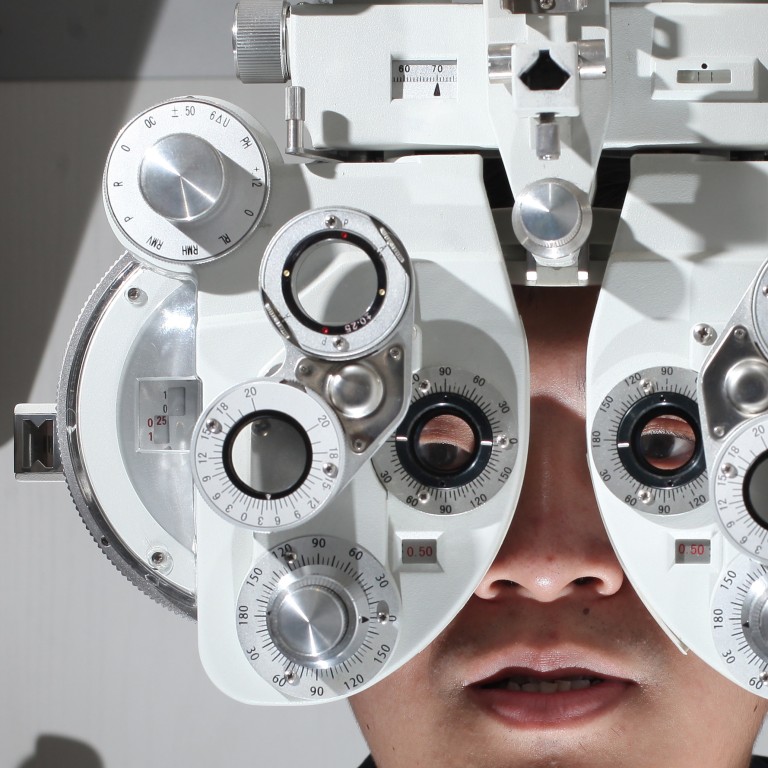
Letters | Hong Kong must not take its eyes off primary health care
- Readers discuss why every district health centre should provide basic eye health services, and the effectiveness of the tobacco tax
The importance of primary care was first promulgated through the seminal Declaration of Alma-Ata in 1978 by the World Health Organization. In subsequent years, the value of primary health care has been emphasised in the WHO’s annual reports.
In 2019, the WHO published the World Report on Vision. It is estimated that 2.2 billion people are visually impaired including 1 billion whose impairment could have been avoided. The report forecasts that in view of population ageing and changes in lifestyles, eye conditions will increase immensely in the coming years. It is advocating for eye care to be an integral part of universal health coverage.
Eye and vision disorders have broad implications for health care because they may cause disability and loss of productivity. Early detection and treatment of these conditions are important in maintaining functional ability. Appropriate diagnosis and management of these conditions reduce the damage and consequent disability. Eye and vision disorders indeed have an impact on the quality of life.
With the use of computers, there are more visual symptoms that adversely affect health and performance in the workplace. Children’s vision problems need to be identified early, ensuring their eyes are functioning normally. Myopia control measures need to be implemented at critical periods of children’s growth.
A growing number of nations, including developed countries, have started to recognise the public health and fiscal benefits of emphasising greater promotional, preventive, curative and rehabilitative programmes in their health care systems because of the relatively higher set-up and operating costs of secondary and tertiary curative care infrastructure and manpower. Primary health care has become a higher priority and primary eye care is an integral part.
The World Council of Optometry defines optometrists as primary health care practitioners of the eye and visual system who provide comprehensive eye and vision care. Eye health centres with qualified administrative and clinical staff offer a smooth operating model that can be duplicated anywhere because the services provided are standardised. These centres could also raise awareness in communities about eye care. Hong Kong would benefit from such centres at the district level.
George Woo, emeritus professor, School of Optometry, Hong Kong Polytechnic University
Smokers don’t seem deterred by tobacco tax
However, the tax might backfire by making smoking a status symbol among the more well off. In Central, where I work, I often see smokers swarming near the entrances to buildings and near the fire exit doors, unheeding of “no smoking” signs. The smokers range from chefs in their white kitchen uniforms to executives in suits and ties.
They seem to neither worry about the increase in cost nor the moral debt they incur whether in the pursuit of pleasure or as a break from their hectic work. They are indifferent to how they bother pedestrians, who have to bend away to avoid the smoke.
Edmond Pang, Fanling

